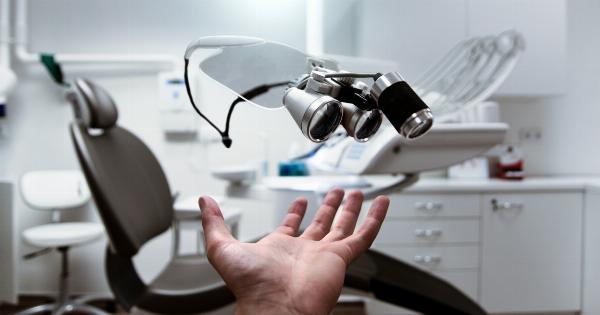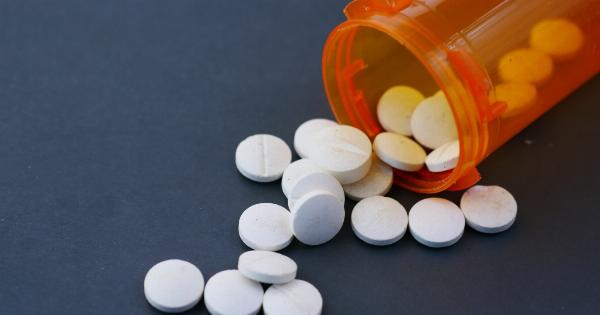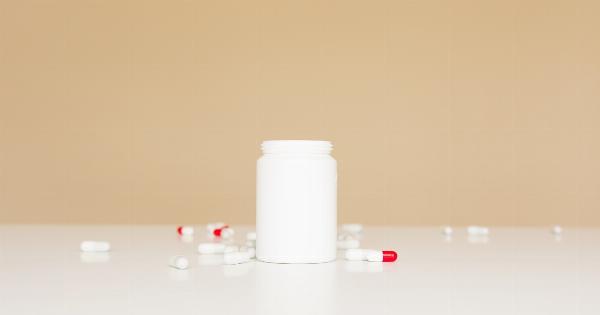As parents, we all want our children to be healthy and happy. We take them to the doctor for regular check-ups, make sure they eat properly and get enough exercise, and do our best to keep them safe from harm.
However, many parents are unaware of the potential harm that certain commonly prescribed medications can have on their child’s teeth. Here are some of the most common prescription drugs that can cause damage to your child’s teeth:.
1. Antibiotics
Antibiotics are frequently prescribed to children to treat bacterial infections, such as strep throat or ear infections. Unfortunately, many antibiotics can cause damage to the teeth and gums.
Some antibiotics, such as tetracycline, can cause permanent discoloration of the teeth, especially if taken during infancy or early childhood. Other antibiotics can disrupt the balance of bacteria in the mouth, leading to an increased risk of tooth decay and gum disease.
2. Asthma Medications
Asthma is a chronic respiratory condition that affects many children. Inhalers and other asthma medications are often necessary for managing the symptoms of this condition.
However, many asthma medications contain high levels of sugar, which can lead to tooth decay and cavities. In addition, some asthma medications can cause a decrease in saliva production, which can also increase the risk of tooth decay.
3. ADHD Medications
Attention Deficit Hyperactivity Disorder (ADHD) is a common condition that affects many children. Medications such as Ritalin and Adderall are often prescribed to help manage the symptoms of this condition.
However, these medications can cause a decrease in saliva production, which can increase the risk of tooth decay and gum disease. In addition, some ADHD medications can cause teeth grinding and clenching, which can also lead to dental problems.
4. Antidepressants
Antidepressants are commonly prescribed to children and adolescents who suffer from depression or anxiety. However, these medications can cause a decrease in saliva production, which increases the risk of tooth decay and gum disease.
In addition, some antidepressants can cause teeth grinding and clenching, which can lead to dental problems.
5. Antihistamines
Antihistamines are often prescribed to children to treat allergies. However, these medications can cause a decrease in saliva production, which increases the risk of tooth decay and gum disease.
In addition, some antihistamines can cause dry mouth, which can also increase the risk of dental problems.
6. Gastrointestinal Medications
Many children suffer from gastrointestinal problems, such as acid reflux or GERD. Medications such as antacids and proton pump inhibitors (PPIs) are often prescribed to manage these conditions.
However, these medications can cause a decrease in saliva production, which increases the risk of tooth decay and gum disease. In addition, prolonged use of these medications can lead to a deficiency in certain vitamins and minerals, such as calcium and magnesium, which are essential for healthy teeth and bones.
7. Chemotherapy Drugs
Children who receive chemotherapy for cancer treatment often suffer from oral side effects, such as mouth sores, infections, and dry mouth. Chemotherapy drugs can cause damage to the teeth and gums, and increase the risk of tooth decay and gum disease.
In addition, some chemotherapy drugs can cause permanent damage to tooth enamel, leading to discoloration and decay.
8. Corticosteroids
Corticosteroids are often prescribed to children to manage a variety of conditions, such as asthma, allergies, and autoimmune disorders.
However, these medications can cause a decrease in saliva production, which increases the risk of tooth decay and gum disease. In addition, corticosteroids can cause changes in the structure of the bone, which can affect the development of teeth and lead to dental problems.
9. Opioids
Opioids are powerful pain medications that are often prescribed to children after surgical procedures or to manage chronic pain.
However, these medications can cause a decrease in saliva production, which increases the risk of tooth decay and gum disease. In addition, prolonged use of opioids can lead to a condition known as dry mouth syndrome, which can cause severe damage to the teeth and gums.
10. Acne Medications
Many teenagers suffer from acne, and prescription medications such as Accutane are often prescribed to treat this condition.
However, Accutane and other acne medications can cause a decrease in saliva production, which increases the risk of tooth decay and gum disease. In addition, prolonged use of these medications can lead to permanent damage to the teeth and gums.
Conclusion
Prescription medications can have a powerful impact on children’s health, but many parents are not aware of the potential harm that these drugs can cause to their child’s teeth and gums.
If your child is taking any of the medications listed above, it is important to discuss the potential dental side effects with your child’s healthcare provider. In addition, make sure that your child practices good oral hygiene, eats a healthy diet, and visits the dentist regularly to maintain strong, healthy teeth and gums.






























